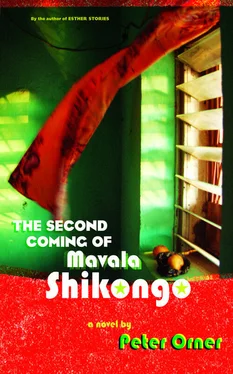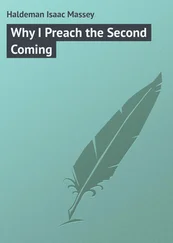“He wore a top hat,” I said.
“I wonder why. To make himself taller? Napoleon did that.”
“I think he was tall to begin with.”
“Hmm. Interesting. A tall man in a tall hat. May I ask you another question? Apropos perhaps of nothing?”
“Sure.”
“Your quite un-Wilsonian surname. What sort of name is Kaplansk? It seems highly original.”
“It was Jewish Polish until the principal lopped off an —”
“Polish! I should have known! How many names under the sun rhyme with Gdansk? Ah, and a Semite? But your hair —”
“What?”
“It’s orange.”
“Yes.”
He leaned toward me and examined my face. I breathed in his sweet, malty breath. “Hmm. Yes, well, Hosanna! My first Jew! I’ve waited a long time.”
“You’re my first Damara.”
“Half. My father came from Angola.”
“First half-Angolan also.”
“My father’s dead. Yours?”
“No.”
“Jewish as well?”
“Yes.”
“A rebbe?”
“No.”
“A scholar?”
“Not really.”
“A dealer in ancient manuscripts and maps? A cabbalist? A loan officer? Pardon any offense.”
“He’s a dentist.”
Obadiah thought a moment, a bit dejected, but after he zipped up, he brightened. “Ah yes, a most basic and elemental human need fulfilled, no doubt honorably, by your Hebrew father.”
“He left my mother. Ran off to Memphis with a hygienist named Brenda.”
“I see, nonetheless, teeth…”
Every moment is a death. We may go back and haunt them, but we may never possess them again. Who designed such a cruel mechanism as memory? Imagine yourself on a train. You see a boy walking the veld. He begins to raise his arm, his mouth widens. He’s about to shout to you — and then nothing. The boy’s gone before you even started to see him. I was on a train only once, the most dawdling train anybody ever bothered to build — the Windhoek-Swakop line. Pushing a team of wheelbarrows across the Namib would be faster. But even the slowest train in creation is still a train. Even a wooden seat in a third-class carriage rocks you like a mother. See him out there beside the tracks? Trousers too short for him, shirtless, carrying a staff tied off with a red kerchief? And still I can’t hold him, his rising arm, his almost shout. I float by. Something he needed to tell me? Something I needed to know? So I died then. That was twenty-five years ago, the occasion of my exile. Are that boy’s words still on the wind? A warning? At the temple courts, Jesus wrote with his finger, in the dust. What words? Nobody knows. Do you see what I’m trying to say?
I’m not talking about some fucking Gandhi refusing to step on ants,” Pohamba says.
He tells this often. It happened up north in the bush near Oshikuku, he says. An SADF tank is roaming the veld looking for terrorists, when suddenly — Pohamba loves the word “suddenly”—an old man with leaves on his head jumps out from beyond a clump of bush and begins to beat the tank with a stick. The two troopies inside watch him for a while through the heavy windows. It’s a pretty good show after two months of wet Ovambo heat. They listen to the crazy smacking, which reverberates, so that for every hit they hear it twice. Someone’s knocking on the door, one troopie sings. Someone’s ringing the bell. He points to the other troopie, who opens the hatch and shoots the man with leaves on his head once in the arm, but this doesn’t stop him. He keeps at it. Whack whack. The troopie shoots him again. Single pistol shots sound almost funny in a bush war like this, Pohamba says. Normally you hear only the bursts of automatics. But the second shot doesn’t slow him down either. The man with leaves on his head is dancing now. Dancing around the tank, bleeding and hitting. Now the tank is polka-dot red. It takes two helmeted troopies ten shots, Pohamba says, and even then he never lets go of the stick.
“And do you know what?”
We know. It’s me and Vilho and him, and we’re lounging on the mealie sacks outside the hostel kitchen, waiting for Dikeledi to hang her laundry. Holy laundry, blessed laundry. Pohamba slides his mirrored sunglasses down his nose and peers at us, repeats, “And do you know what?”
I stifle a yawn. “I can’t imagine.”
He leans back against the mealie sacks, sighs. Then he drags it out, slowly, dramatically: “He wasn’t a he.”
“Tut,” Vilho says, without looking up from his book. “Tut, tut, tut.”
Pohamba sucks his teeth and starts again. “Once upon a time in the north… You see, the north isn’t like here. Things happen in the north. Things have happened in the north. This is not a place to live. Cows eat sand for breakfast. In the north, the baobab trees grow so big they use one as a post office.”
“A baobab isn’t a tree,” Vilho says. “It’s a succulent.”
“Once upon a time in the sacred north,” I say. “An SADF tank is roaming the veld when suddenly a man with leaves on his head…”
“. . begins beating the tank with a stick,” Pohamba says. “And beating and beating and beating and beating…”
“. . until one of the troopies inside gets tired of it, so he shoots the man…”
“. . who isn’t really a man,” Vilho says.
“Yes,” Pohamba shouts. “The end!”
We sit there. It’s still too early for Dikeledi’s laundry.
Vilho looks up from his book. “But why would she want to die like that?” he says. “Why would anyone choose such a graceless death?”
“Graceless?” Pohamba says. Then he stands up and does Christ. This is a new wrinkle in the story. He droops his head, reaches his arms out wide, contorts his face into his idea of rapturous agony. Crucifixion atop the mealie sacks. “You prefer this?”
“Our Lord didn’t have a choice,” Vilho says, looking up at him. “He didn’t want to die for us, he wanted to live. That’s the whole message.”
And Jesus did nudge Vilho with his toe. His arms still stretched out, his head lolling, Pohamba says, “You see, they’ve killed everyone in my village. All the terrorist old women and all the terrorist babies and all the terrorist chickens. Only I was left alive. So what must I do? I gather leaves. I find a good stick. Now do you understand?”
“Even their abominations do not justify.”
Pohamba twitches and takes a sniff of an armpit. “Whew, brother, too long on the cross!”
“Let her live,” Vilho says, squeezing his eyes shut. “Next time you tell it, let her —”
“What?” Pohamba plops down heavily on the mealie sacks. “You want her to wait around for it like a goat?”
Drought stories were told the same way war stories were — they filled in the gaps of the longest days — except they were more true and left less room for dramatic acts of bravery. You don’t fight the Almighty. You don’t sneak up behind lack of rain. You don’t sabotage clouds. You die. At least back in the old days. Now drought means you breathe up dust and the food prices are higher at the Pick ’n Pay and salaries remain the same and the government has to import mealies from Zimbabwe. And cattle suffer.
But in ’79 the drought in the Koakveld (this happened to other people — to be a victim of drought meant you were a farm person, and no one at Goas was a farm person, Goas being a temporary stop, no matter how many years of your life you spent there) was accompanied by an epidemic of rats. Rats who became just as hungry as the people. What happened was, a rat ate a baby. This happened to a family no one knew personally. Antoinette told it while she was hosing down her tiny garden with water pirated from the science lab. She grew wild onions and radishes and small tomatoes. She was wearing her green Sunday dress. It was Sunday, after church. During the drought of ’79, in the Koakveld, up in Africa, she said, not here, it didn’t happen down here, a starving rat ate a starving baby.
Читать дальше












